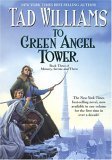Bangkok 8 has all the usual components of a typical mystery/conspiracy novel – drugs, jewels, prostitution, the FBI, local police detectives, murder mystery, government cover-ups, corruption, and redemption. However, a person can easily read the book without ever realizing this – this is what makes it great.
I am about as ‘suburban white-guy’ as you can get, and I have not had the pleasure to visit Thailand (though as you would except of someone like me, I should point out that I like Thai food). I mention this because (to me) Bangkok 8 was a vision of Thailand – not the Thailand that I as a tourist would ever see or know, but the ‘real’ Thailand. The book is thoroughly modern, yet rooted in traditions of the East that cannot be equaled in the West. Have I gone a bit too far – perhaps, but when you read this book you’ll understand where I’m coming from.
Sonchai Jitpleecheep and his partner are the only honest cops in the whole of Bangkok – which is an interesting development as he is the half-blood son of a whore with a criminal past. His devout Buddhism and honesty set him apart and on a path to tragedy when his partner is killed in the line of duty. Honor-bound to seek vengeance, Sonchai finds himself teamed with a perplexing, beautiful, and very American FBI agent as the investigation turns from ‘who did it’ to ‘what will they do next’.
The murder-mystery-conspiracy plot of Bangkok 8 is good, but nothing new under the sun. The difference, and it’s a wonderful difference, is the point of view from Sonchai – he is all Thai, yet set-apart as a half-blood, and a keen observer as West meets East. I’m in no position to know if Burdett gets Thailand ‘right’ in this book, but it feels like he did.
Sonchai is a sort of metaphysical, karmic guide through the brothels of Bangkok while the wicked and biting exchanges between him and Agent Jones serve as the perfect vehicle for the cultural clash that is Bangkok 8. I now have the urge to visit Thailand to see this clash for myself, ideally as a somewhat removed observer, and to know whether the culture of the East is the future, the past, or something else.
On my 10-point rating scale, Bangkok 8 scores a very appropriate 8. The flavor of this book has all the spice of Thai chili and the moral ambiguity that Western culture cannot live with. I look forward to further adventures of Detective Jitpleecheep in Bangkok Tattoo and forthcoming Bangkok Haunts.








